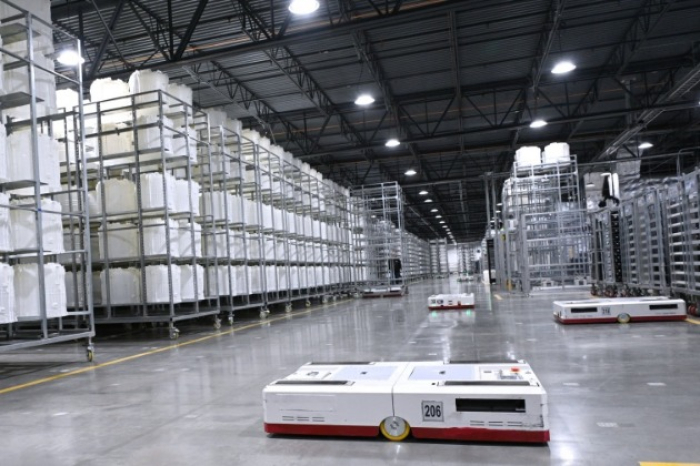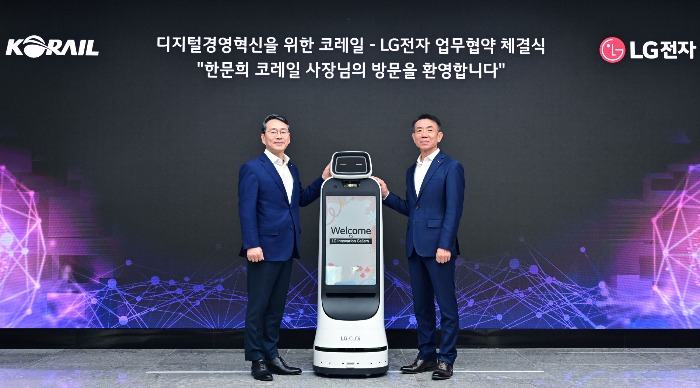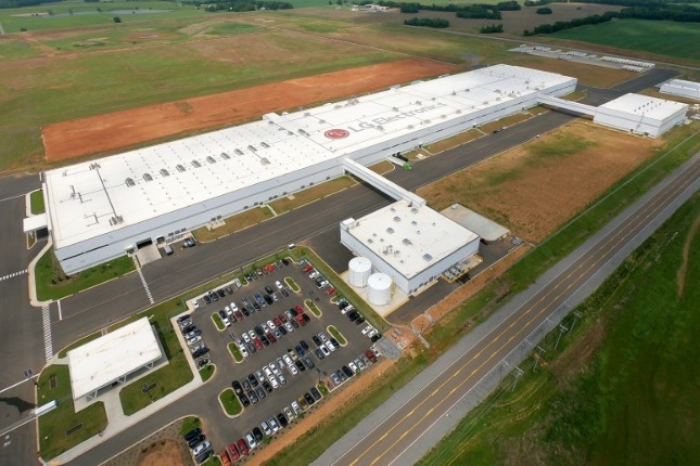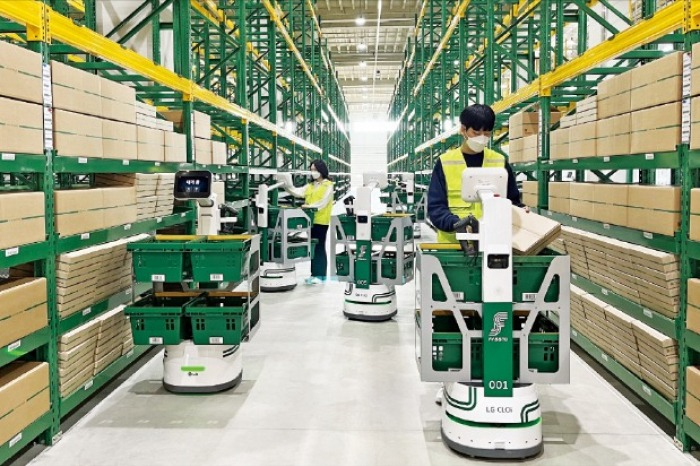Tech, Media & Telecom
LG Electronics accelerates foray into private 5G service
The S.Korean electronics giant has named the private 5G service as one of its next B2B growth engines
By Nov 10, 2024 (Gmt+09:00)
3
Min read
Most Read
LG Chem to sell water filter business to Glenwood PE for $692 million


KT&G eyes overseas M&A after rejecting activist fund's offer


Mirae Asset to be named Korea Post’s core real estate fund operator


StockX in merger talks with Naver’s online reseller Kream


Meritz backs half of ex-manager’s $210 mn hedge fund



LG Electronics Inc.'s push to expand its presence in the burgeoning private 5G network market is poised to gain traction.
The South Korean electronics giant announced on Sunday that it will build its private 5G network at Seoul Station and the Korail Siheung Train Depot in Gyeonggi province to spearhead digital transformation at the facilities, with real-time monitoring of the facilities and locomotives and a digital twin technology.
It also vowed to discover new business models using the local 5G network services.
The announcement comes after the company signed an MOU with Korea’s state-owned railway operator Korea Railway Corp. (Korail) on Friday to build the e-Um 5G network to innovate the national railway system.
E-Um 5G is a private 5G network that can be customized for different locations based on specific needs. It is a business-exclusive network service using 5G that can be accessed only through a business or organization’s devices or terminals.
PRIVATE 5G NETWORK MARKET SET TO BURGEON
Private 5G network service boasts ultra-high speed, ultra-low latency and highly reliable connectivity — key to the operations of smart factories, robot-driven logistics and hospitality services, and other industrial automation systems.

Its global demand is set to take off in line with the development of future technologies including AI, big data, cloud, autonomous driving and augmented reality.
The global 5G private network market is forecast to grow to $11.8 billion in 2028 from $2 billion in 2023 at an annual growth rate of over 40%, according to market research firm MarketsandMarkets.
LG Electronics has been accelerating its push to win the private 5G network race on expectations that the private 5G business will create huge synergy with its other business-to-business (B2B) services and products such as automated mobile robots and automated guided vehicles, used mainly in smart factories, logistics centers and hospitals.
The Korean company said it has successfully tested its 5G private network services at various sites in Korea, including a smart factory in North Chungcheong province, a logistics center in Incheon and a university hospital in Seoul. It has also tested it at its smart factory in the US state of Tennessee.
It owns some 30,000 patents in related technology, according to the company.
SYNERGY WITH OTHER B2B BUSINESSES
LG Electronics has designated the B2B sector as one of its future growth drivers, with its long-term plan, announced in August at its Investors Forum, to generate 45% of total sales from its B2B operations by 2030.

In July 2023, LG Electronics CEO Cho Joo-wan unveiled the company’s vision of achieving 100 trillion won ($71.5 billion) in annual sales by 2030 by transforming from a traditional home appliance maker into a platform-based tech giant.
The company earned 84.2 billion won in consolidated sales in 2023.
LG Electronics operates an array of B2B operations, including automotive electronics, heating, ventilation and air conditioning (HVAC) systems, built-in appliances, smart factory solutions, commercial displays and mobility solutions.
Last month, the company said it will seek to double its Business Solutions unit's revenue to 10 trillion won by 2030.
Of its four business units, Business Solutions is responsible for digital signage, commercial TVs, robots, electric vehicle chargers and information technology devices such as laptops and monitors.

It has also joined the race to win the chiller market, which is growing rapidly thanks to increasing demand for AI data centers.
The company set a goal of raising sales from the chiller business to 1 trillion won by 2027.
It inked a 100 billion won deal in the second quarter to provide cooling machinery for a data center in North America.
Its accelerated foray into the private 5G network market is expected to help the company offer more products and services in the B2B sector to smart factories, logistics centers and data centers as a turnkey solution.
“LG Electronics’ B2B business is not limited to single product supply,” said CEO Cho. “The company plans to pursue sustainable growth of its high-value-added business that offers the customer an all-in-one service with diverse products for a special space.”
Write to Jeong-Soo Hwang at hjs@hankyung.com
Sookyung Seo edited this article.
More to Read
-

-
 Corporate strategyLG to seek most of profit from new growth engines
Corporate strategyLG to seek most of profit from new growth enginesAug 21, 2024 (Gmt+09:00)
3 Min read -
 ElectronicsLG Electronics’ new HVAC center in Europe to fight extreme temperatures
ElectronicsLG Electronics’ new HVAC center in Europe to fight extreme temperaturesJul 15, 2024 (Gmt+09:00)
2 Min read -
 Corporate strategyLG Electronics aims to transform into platform-based tech firm by 2030
Corporate strategyLG Electronics aims to transform into platform-based tech firm by 2030Jul 12, 2023 (Gmt+09:00)
3 Min read -
 Tech, Media & TelecomLG Electronics picks private 5G network as next growth engine
Tech, Media & TelecomLG Electronics picks private 5G network as next growth engineMar 05, 2023 (Gmt+09:00)
3 Min read
Comment 0
LOG IN


